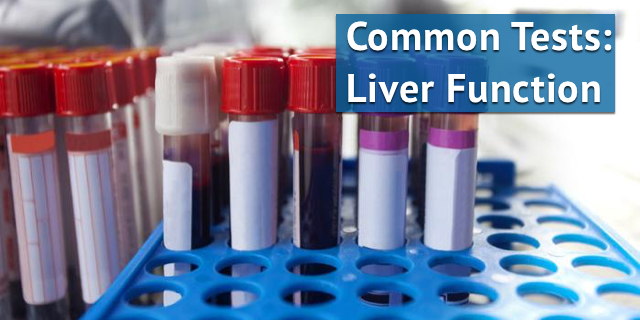The largest solid organ in the body, the liver has at least 500 distinct functions. [See 5 Facts You Probably Didn’t Know About Your Liver] It produces bile to break down fats in the small intestine, stores glucose in the form of glycogen, processes hemoglobin and manufactures proteins and enzymes.
There are several liver tests conducted to assess your health and the health of this versatile organ.
Bilirubin
Bilirubin is the chemical which gives skin the yellow color typifying jaundice. When red blood cells are broken down, the liver produces bilirubin, a yellow fluid in the bile. Your physician tests blood for the presence of bilirubin because damage to the liver causes bilirubin to leak into your blood.
Prothrombin
The liver creates the chemicals (coagulants) that are part of blood clotting. One of these is prothrombin. One test called the PT test, times how quickly your blood clots.
Albumin
Albumin is one of the most abundant proteins in the blood and the liver manufactures it. It carries hormones and vitamins throughout the body and is essential for keeping fluid from leaking out of blood vessels.
Globulins
A group of four proteins produced in the liver by the immune system, globulins are part of the body’s clotting mechanism and play a role in fighting infections.
Gamma-glutamyl transpeptidase (GGT)
Enzymes trigger chemical reactions. Gamma-glutamyl transpeptidase (GGT) is an enzyme found primarily in the liver, pancreas, spleen and kidneys. In the liver, it is involved in metabolizing medications and toxins. It also transports molecules throughout the body. If your bile ducts have a blockage, GGT builds up in the blood.
Alkaline Phosphatase
The liver is one source of this enzyme which is involved in breaking down proteins. Alkaline phosphatase can leak into the blood if the liver is damaged.
Aspartate Transaminase
This enzyme is found in muscles, liver and heart. Very little is found in the bloodstream but it too can leak into the bloodstream when there is damage to the liver.
Alanine Transaminase
Alanine Transaminase, a metabolic enzyme in liver cells, breaks down proteins. Again, if found in your blood, damage to the liver has occurred.
Below is an infographic providing normal levels for each liver function test as well as what abnormal numbers can mean to your health.






